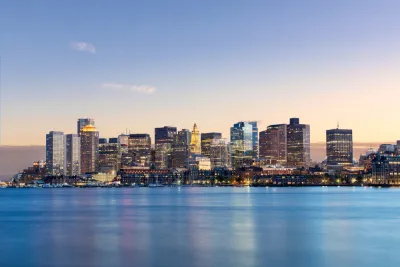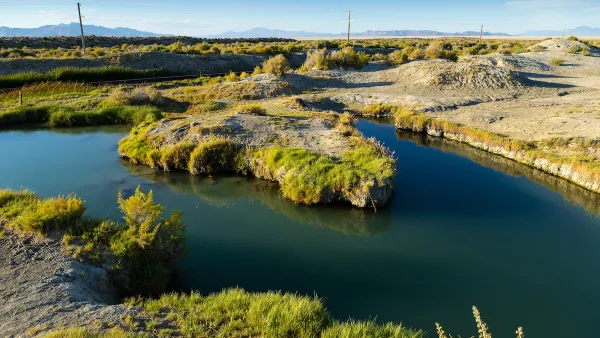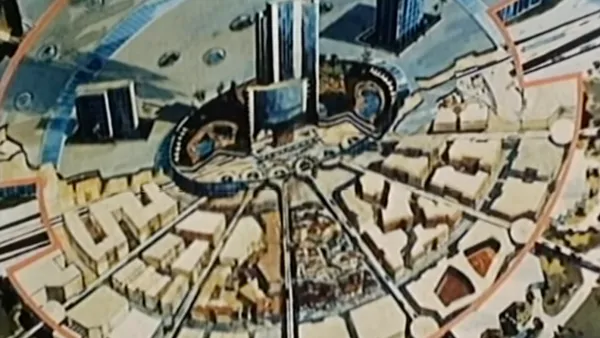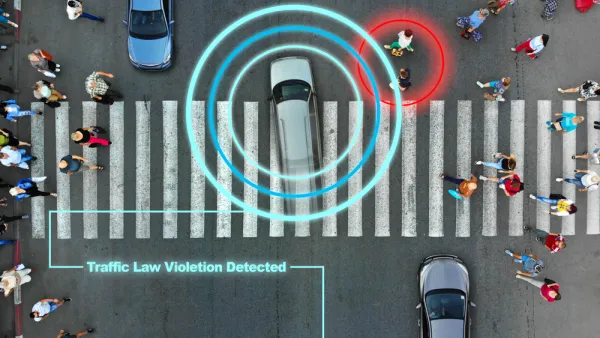After some notable disappointments in the development of 'smart city' projects, experts are increasingly critical of the movement to use tech to solve urban problems.

In a piece on Treehugger, Lloyd Alter outlines some of the criticisms of the 'smart city' concept, reminding readers that, despite the promises made by "smart garbage bins" or "smart parking systems," "almost every smart solution listed here is fixing a problem that could be solved in a simpler, low-tech way instead of adding a layer of complexity and 'smart.'" Planetizen previously covered Shannon Mattern's book A City Is Not a Computer, which describes the ways that the mentality prevalent among 'smart city' proponents clashes with the realities and unpredictabilities of real cities.
For Alter, the key is getting "back to basics" when it comes to urban planning and sustainability, quoting Shoshana Saxe: "Rather than chasing the newest shiny smart-city technology, we should redirect some of that energy toward building excellent dumb cities—cities planned and built with best-in-class, durable approaches to infrastructure and the public realm."
Alter quotes multiple experts who similarly question the value of introducing too much technology in lieu of simpler, low-tech solutions that already exist—if we have the political will to implement them. According to architect Michael Eliason, "we have had decades of politicians ignoring the data on climate change—prioritizing gizmos instead of sustainable mobility, socially and economically diverse ecodistricts, and car-free spaces. If we are to seriously tackle adapting to climate change, it is these types of things we will need to prioritize."
FULL STORY: Enough With 'Smart Cities'—We Need Cities Done Right

National Parks Layoffs Will Cause Communities to Lose Billions
Thousands of essential park workers were laid off this week, just before the busy spring break season.

Retro-silient?: America’s First “Eco-burb,” The Woodlands Turns 50
A master-planned community north of Houston offers lessons on green infrastructure and resilient design, but falls short of its founder’s lofty affordability and walkability goals.

Delivering for America Plan Will Downgrade Mail Service in at Least 49.5 Percent of Zip Codes
Republican and Democrat lawmakers criticize the plan for its disproportionate negative impact on rural communities.

Test News Post 1
This is a summary

Test News Headline 46
Test for the image on the front page.

Balancing Bombs and Butterflies: How the National Guard Protects a Rare Species
The National Guard at Fort Indiantown Gap uses GIS technology and land management strategies to balance military training with conservation efforts, ensuring the survival of the rare eastern regal fritillary butterfly.
Urban Design for Planners 1: Software Tools
This six-course series explores essential urban design concepts using open source software and equips planners with the tools they need to participate fully in the urban design process.
Planning for Universal Design
Learn the tools for implementing Universal Design in planning regulations.
EMC Planning Group, Inc.
Planetizen
Planetizen
Mpact (formerly Rail~Volution)
Great Falls Development Authority, Inc.
HUDs Office of Policy Development and Research
NYU Wagner Graduate School of Public Service





























